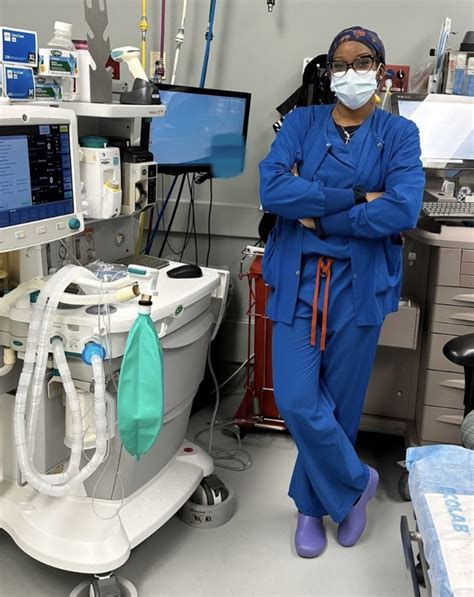Overview: A Legacy of Excellence
The University of Pittsburgh’s Certified Registered Nurse Anesthetist (CRNA) program holds a prestigious reputation in the realm of nurse anesthesia education. With its unwavering commitment to academic rigor, clinical acumen, and cutting-edge research, the program has consistently ranked among the nation’s top CRNA programs.

Program Highlights
- Accreditation: Accredited by the Council on Accreditation of Nurse Anesthesia Educational Programs (COA)
- Curriculum: Follows the American Association of Nurse Anesthetists (AANA) Core Curriculum
- Clinical Training: Comprehensive hands-on experience in diverse clinical settings, including university hospitals, community hospitals, and ambulatory surgery centers
- Faculty: Renowned faculty with expertise in nurse anesthesia, critical care, and research
- Simulation Laboratory: State-of-the-art simulation lab for skills acquisition and practice
- Research Opportunities: Active research program with faculty mentorship
Admission Requirements
To be eligible for admission to the University of Pittsburgh’s CRNA program, applicants must meet the following criteria:
- Bachelor’s degree in nursing from an accredited program
- Current RN license in good standing
- Minimum 1 year of experience as a critical care nurse
- Minimum GPA of 3.5 on a 4.0 scale
- GRE scores (scores within the 50th percentile or higher are preferred)
- Strong letters of recommendation
Curriculum
The CRNA program at the University of Pittsburgh follows a rigorous, three-year curriculum that includes both classroom and clinical experiences. The program is designed to prepare students to provide safe, effective, and autonomous anesthesia care.
The curriculum encompasses a comprehensive range of topics, including:
- Nurse anesthesia pharmacology
- Physiology and pathophysiology
- Anesthesia techniques
- Critical care management
- Patient assessment and monitoring
- Research methods
Clinical Training
Clinical training is an integral part of the University of Pittsburgh’s CRNA program. Students rotate through various clinical settings to gain experience in a variety of settings, including:
- University Hospital
- Children’s Hospital of Pittsburgh
- VA Pittsburgh Healthcare System
- Mercy Hospital of Pittsburgh
- Forbes Hospital
During clinical rotations, students work under the direct supervision of experienced nurse anesthetists. They gain hands-on experience in all aspects of anesthesia care, including patient assessment, monitoring, and anesthesia administration.
Research Opportunities
The University of Pittsburgh’s CRNA program fosters a strong research environment. Students are encouraged to participate in research projects under the mentorship of faculty members. The program’s research focus includes:
- Patient safety
- Clinical outcomes
- Anesthesia techniques
- Education
Career Outcomes
Graduates of the University of Pittsburgh’s CRNA program have a high success rate in obtaining employment as certified registered nurse anesthetists. According to the AANA, the median salary for CRNAs in the United States is over $200,000.
CRNAs work in a variety of settings, including hospitals, surgery centers, and pain management clinics. They provide anesthesia care to patients undergoing a wide range of surgical procedures, from minor outpatient procedures to complex, high-risk surgeries.
Frequently Asked Questions
What is the cost of the CRNA program at the University of Pittsburgh?
The total cost of the three-year CRNA program is approximately $100,000. This includes tuition, fees, and clinical expenses.
Are there scholarships available for CRNA students?
The University of Pittsburgh offers a limited number of scholarships to CRNA students based on academic merit and financial need.
What is the job outlook for CRNAs?
The job outlook for CRNAs is excellent. The AANA projects that the demand for CRNAs will grow by 26% from 2020 to 2030.
What is the length of the CRNA program at the University of Pittsburgh?
The CRNA program at the University of Pittsburgh is a three-year, full-time program.
What are the clinical requirements for the CRNA program?
Applicants to the CRNA program must have a minimum of one year of experience as a critical care nurse.
What is the application deadline for the CRNA program?
The application deadline for the CRNA program is typically in October.
Table 1: CRNA Program Curriculum
| Course Title | Credits |
|---|---|
| Nurse Anesthesia Pharmacology I | 4 |
| Physiology and Pathophysiology | 4 |
| Anesthesia Techniques I | 4 |
| Critical Care Management I | 4 |
| Patient Assessment and Monitoring | 4 |
| Nurse Anesthesia Pharmacology II | 4 |
| Anesthesia Techniques II | 4 |
| Critical Care Management II | 4 |
| Research Methods | 4 |
| Clinical Practicum I | 4 |
| Clinical Practicum II | 4 |
| Clinical Practicum III | 4 |
Table 2: CRNA Program Clinical Rotations
| Clinical Setting | Rotation Length |
|---|---|
| University Hospital | 12 weeks |
| Children’s Hospital of Pittsburgh | 8 weeks |
| VA Pittsburgh Healthcare System | 8 weeks |
| Mercy Hospital of Pittsburgh | 8 weeks |
| Forbes Hospital | 8 weeks |
Table 3: CRNA Program Admission Requirements
| Requirement | Details |
|---|---|
| Degree | Bachelor’s degree in nursing from an accredited program |
| RN License | Current RN license in good standing |
| Critical Care Experience | Minimum 1 year of experience as a critical care nurse |
| GPA | Minimum GPA of 3.5 on a 4.0 scale |
| GRE Scores | Scores within the 50th percentile or higher are preferred |
| Letters of Recommendation | Strong letters of recommendation from healthcare professionals |
Table 4: CRNA Program Career Outcomes
| Career Outcome | Data |
|---|---|
| Employment Rate | 95% |
| Median Salary | $200,000 |
| Job Growth Projection | 26% from 2020 to 2030 |
